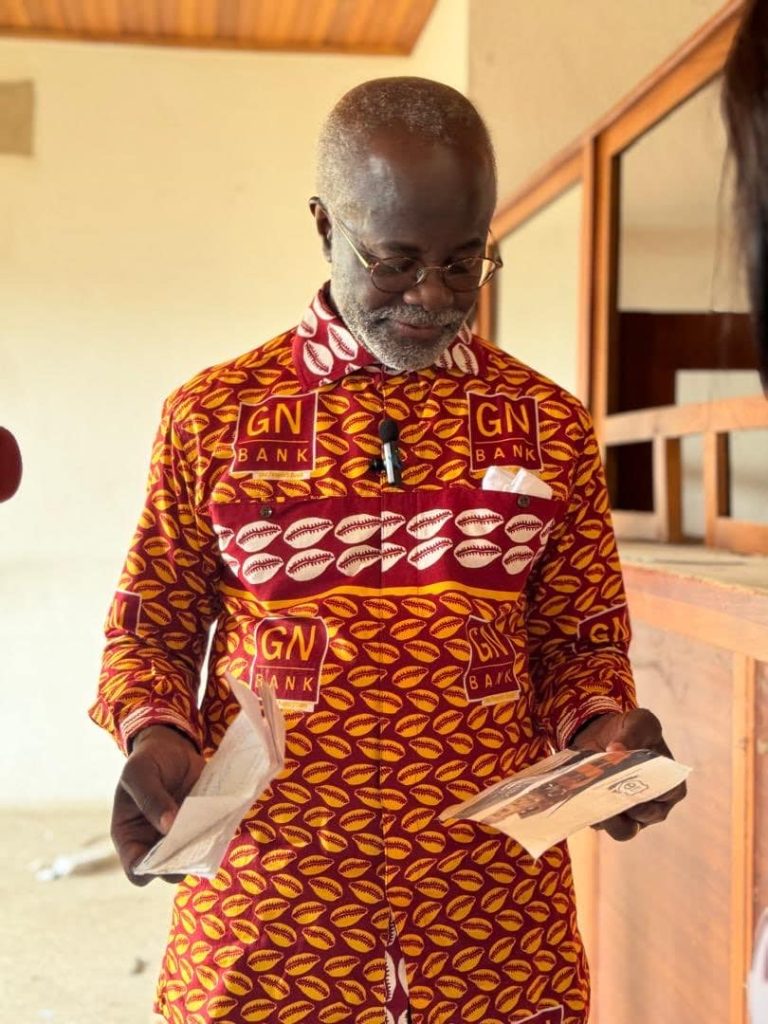By Jibril Abdul Mumuni
Accra, May 29, GNA – Dr. Paa Kwesi Nduom, the founder of the defunct Groupe Nduom Bank, has accused the receiver of mismanaging the assets of the company at various branches across the country.
He said most of the assets of the defunct bank at various outlets across the country were either stolen, illegally auctioned, or destroyed.
Dr. Nduom said this during a press briefing after a tour of the defunct bank’s assets in major towns in the Eastern Region of Ghana, notably Nsawam, Ankropong, Suhum, and Anum Apamapam.
“When we toured some of the facilities in three regions, we all witnessed the deplorable state of our asset. The receiver, who was mandated to protect all these facilities, neglected its responsibilities. This was why we had very bad experiences in places like Potsin, where the bank’s branch has been completely destroyed. In Akropong, we all witnessed how the weeds surrounded the place,” he said.
After the dissolution of the bank in August 2019, the Bank of Ghana appointed Mr. Eric Nana Nipah, a partner at Price Water Coopers (PwC), as receiver to see to the liquidation of the company’s assets.
Dr. Nduom noted that the value of the assets since the revocation of the bank’s license has been rapidly declining, as he accused the receiver of not properly utilising the assets.
In an effort to properly protect the assets, Dr. Nduom said he expected the receiver to conduct routine checks on the facilities to ensure that they were not destroyed.
However, after a tour of the company’s branches in the Central, Western, and Eastern regions, respectively, the assets were in a dire state, as many of the office equipment and other stationery of the bank’s branches were stolen and destroyed.
He accused the receiver of auctioning the assets of the bank, particularly the vehicles, without public advertisement.

Paa Kwesi Nduom and other shareholders of the bank of GN Bank, through their lawyers, challenged the revocation of the license by the bank of Ghana.
He said the bank had initially proposed joint management of the defunct bank’s assets with the receiver to avert the challenge of mismanagement.
Dr. Ndoum emphasised that whoever was complicit in the deteriorated state of the defunct bank’s assets must account for them, as failure to comply with such directives constituted financial loss to the state.
GNA